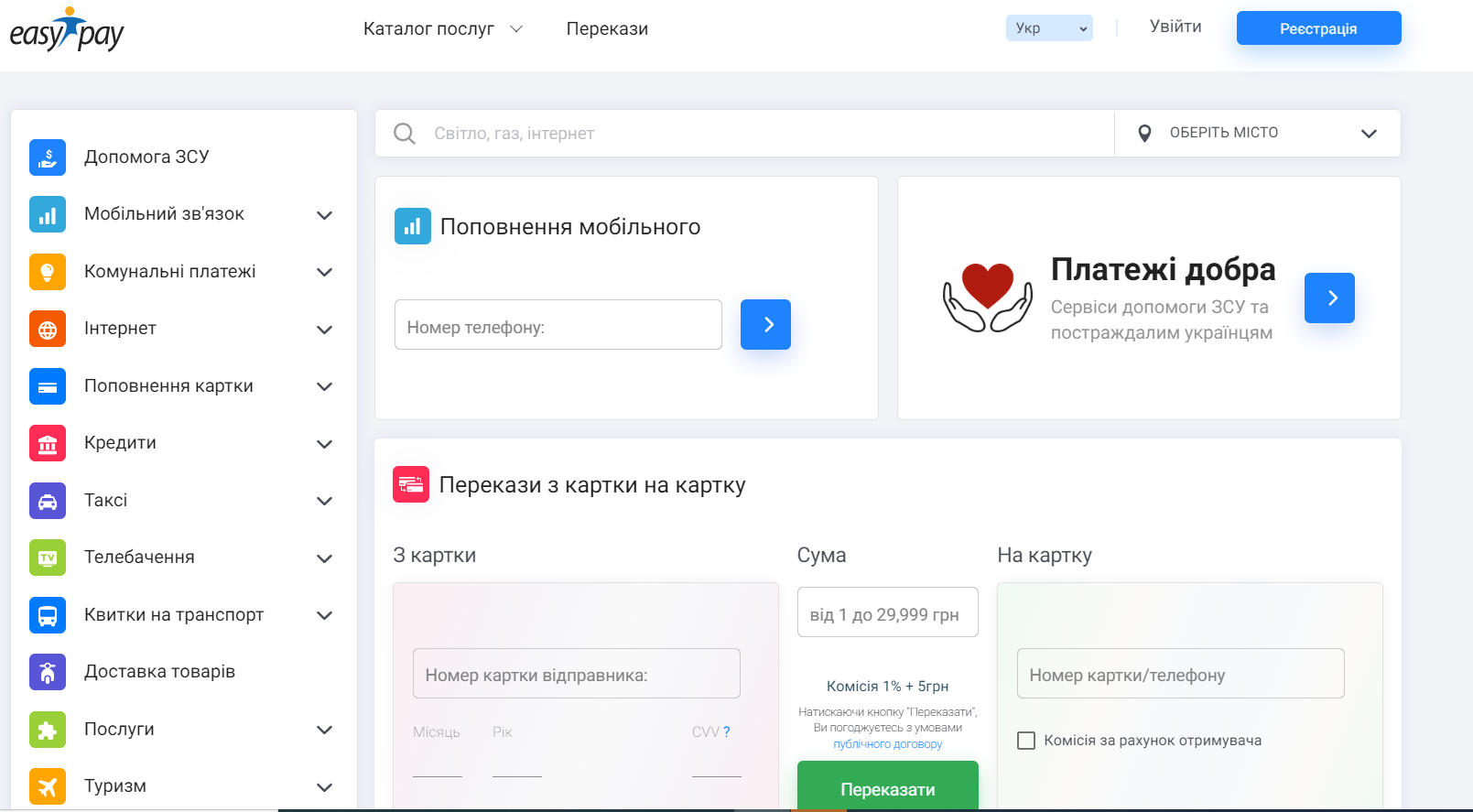A private cloud for secure payments: how EasyPay protected business from force majeure
10.08.2022
The additional site in the GigaCloud cloud allowed the largest operator of payment and financial services of Ukraine to work without downtime and save critical information.
EasyPay is the largest non-bank operator of payment and financial services in Ukraine. It has an integrated payment network that allows you to make payments off-line, on-line and through mobile applications. Every day, Ukrainians make 350,000 payments through more than 18,000 EasyPay payment terminals in all regions and cities of Ukraine, on the Internet and on smart phones. 300 partners use the operator's solutions: on-line stores, banks, travel, insurance, telecommunication companies, etc.

One of the EasyPay payment terminals
Task
The EasyPay company started its work in 2007. During this time, it has created a large ecosystem, which includes the site, applications, terminals and partner sites. It has built up a server park for reliable operation – the entire IT infrastructure of the company is located on servers in the data center.
The EasyPay business is very downtime critical. A payment system is a set of rules, processes and equipment through which money flows between people and organizations. This complex should ensure uninterrupted, safe, reliable and efficient processes of transferring funds on terms common to all participants. EasyPay signs an SLA agreement with partners, which establishes the level of service availability. The company bears financial responsibility in case of service downtime.
With the beginning of the war, the company realized that in the event of force majeure, the backups themselves would not be enough to restore critical data and services. It was decided that in order to better support the continuous activity and security of the IT infrastructure, it is necessary to build another backup site in order to be able to work without downtime.

Home page of the EasyPay website
Solution
The company decided to build the work of the IT infrastructure simultaneously in two data centres in such a way that the main data and services will be located on servers in the data centre, and their copies will be in the cloud. This would make it possible to distribute productive components between data centres, which would lead to an increase in the fault tolerance of the infrastructure with the rational use of the resources of both data centres.
To do this, GigaCloud specialists built a completely isolated private cloud for the client, and customized it to the needs of the customer. Current backup copies of the site, applications, services, databases, etc. are stored there. Ground and cloud data centres are constantly synchronized with each other.
Construction of the site and migration took place in the midst of hostilities and lasted about 20 days.
Result
After the EasyPay company deployed its services in the GigaCloud private cloud, it received a number of opportunities:
- It works at two sites: in the cloud and on the hardware. This guarantees maximum fault tolerance of the system and the ability to work without downtime.
- GigaCloud specialists are engaged in maintenance and modernization of the cloud. This guarantees the optimal operation of the infrastructure and allows EasyPay technical specialists to deal with other tasks.
- It receives timely technical support from GigaCloud specialists 24/7.
- Resources in the cloud are used only by the operator of payment and financial services, which guarantees high productivity and security.
"Private cloud from GigaCloud became the right opportunity to secure business at the most critical moment in all 15 years of our work," says Oleksiy Kabanets, CTO of EasyPay. "Thanks to the deployment of another site, we can work and be sure that our services and databases are reliably protected, and customers will always be able to make payments. We are waiting for victory and will continue to scale in the cloud."



